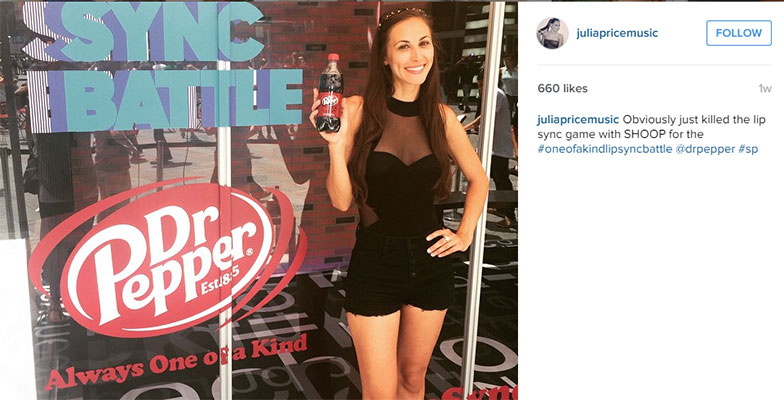
The 6 Rules of Online Shopping for Businesses
Online shopping is everywhere on the Internet these days. It’s what millions, if not billions of people do as a daily, if not hourly activity — your partner does it, your friends do it, your family does it, and so on.
In order to fully understand online shopping, we must gain a firm grasp of social shopping, which essentially is e-Commerce combined with the involvement and interaction of shoppers’ peers and other individuals or groups.
Doctor Paul Marsden in his article carved 6 significant heuristics into the stone block of online shopping. Heuristics are defined as, “a judgement or decision-making mechanism or cognitive shortcut that relies on little information and modest cognitive resources.” But they are basically mental rules of thumb when online shopping.
But what do these rules mean? Especially to small business owners or startups?
Here are the 6 rules of social shopping for amateur marketers and business owners:
1) Social Proof
Rule: Follow the Crowd
When facing uncertainty while online shopping, consumers often look to other consumers for closure — they look to what others are doing or have done, and go with the flow. When something stands out as popular, we see it as social proof, that it is the best available option or most correct choice, simply because everyone else seemingly is choosing it.
What you can do:
- Pick Lists: wish-lists or gift-lists that allow marketers to know what is popular and wanted by consumers
- Popularity Lists: conveying these popular offerings to consumers through lists; using terms such as “most popular”, “most viewed”, “most favourite”, or “best selling”
- Ratings/Reviews: using stars and numbers to convey an offering a popular is definitely an eye-catcher
- Social Media Optimisation (SMO): making content easily shareable across the social web
For a more detailed look on social proof, check out our article.

2) Authority
Rule: Follow the Authority
Just like consumers trust each other when online shopping, they also trust professionals and experts. Similar to social proof, the perception of authority that experts and even celebrities have can show consumers that an offering is important or the most correct choice — most of the time it just makes the consumer’s decision for them.
What you can do:
- Endorsements (celebrity + expert): nothing says “the best toothbrush” like a dentist that uses it himself, and nothing says “the best skin cream” like a famous actress that uses it herself
- Recommendations + Referrals: referral/affiliate programs are the best methods of recommendation authority.
- Forums + Community sites

3) Scarcity
Rule: Scarce Stuff is Good Stuff
When a consumer thinks that there is little of something that they want, they are more likely to purchase the offering. Informally, this can be considered as the “fear of missing out”, or FOMO. Marketers can use FOMO to their advantage when trying to attract consumers to particular offerings.
What you can do:
- Engaging Phrases: attract consumers by showing what offerings you have little stock of, or highlighting specific items; use terms such as “limited time only”, “limited stock/quantity”, or “deal of the day”.
- Exclusivity: offer certain products/services to certain types of customers, or create deals that are time-based or one-off.

4) Affinity (or, Liking)
Rule: Follow those You Like
Consumers have a tendency to follow people that they like, relate to, or admire — it builds social bonds and trust. It’s sort of like the old high school social system, where you would try and be familiar with or get into something that your crush liked; I know I did!
What you can do:
- Influencer Marketing: when online shopping, consumers are influenced by the people that they follow online, which a large part of are influencers — you know, the YouTube comedian, Facebook makeup artist, or Instagram fashionista. More about Influencer Marketing in our awesome article.
- Buzz/Viral Marketing: based on the principle of affinity, buzz and viral marketing need consumers to agree with or admire the idea that is conveyed in the marketing piece.
- Social Referral Marketing: where you can influence and be influenced by other shoppers on certain tools or websites; e.g. ShopSocially.
5) Consistency
Rule: Be Consistent
When faced with uncertainty, consumers are likely to go with what they know and make a decision based on past decisions, beliefs, and behaviours. We can feel psychological discomfort, or “cognitive dissonance” when our beliefs and behaviours don’t match up, which is a key motivator towards consistent decision-making. Habits are also involved, as some consumers fear change or just like sticking to the same online news/weather site, etc.
What you can do:
- Free Trials
- Free Membership Programs
- Subscriptions

6) Reciprocity
Rule: Repay favours
We feel good when we repay favours, it’s just human. Doing good for someone who has done good for you is fulfilling, as all of us would know. In terms of online shopping, marketers can use this to their advantage as they can, in any form, complete a favour for the consumer and hope that the consumer repays the favour.
What you can do:
- Free Trials
- Free Membership Programs
- Anything “free” with a call to action
- Referral/Affiliates Programs
-
Mary Sommer


